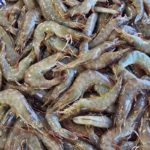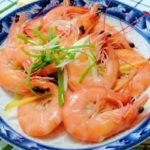Shrimp is a popular seafood choice due to its delicious flavor and slightly chewy texture. However, some people are concerned that eating shrimp will cause weight gain. So, let’s explore the calorie content of shrimp, whether eating shrimp leads to weight gain, and the benefits of this seafood.
1. Calorie Content in Shrimp
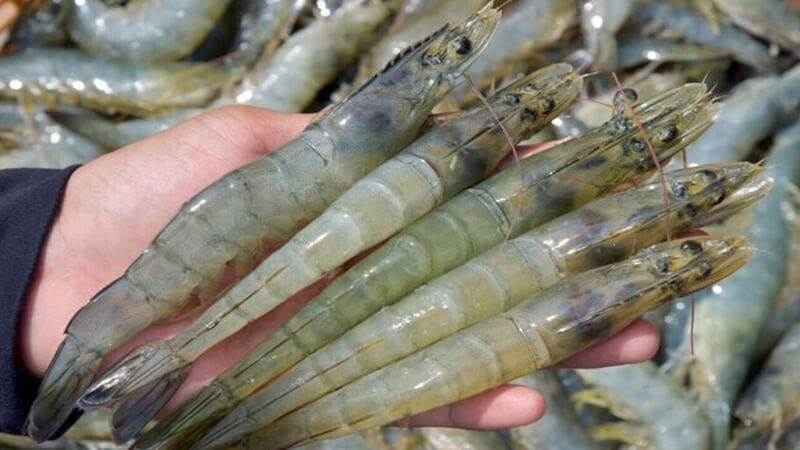 Shrimp has a relatively low calorie content.
Shrimp has a relatively low calorie content.
According to the United States Department of Agriculture (USDA), shrimp is primarily composed of protein and water. In 100 grams of peeled shrimp, there are approximately 99 calories and essential nutrients such as:
- 0.3g of total fat
- 0.2g of saturated fat
- 0.189g of carbohydrates
- 0.111g of sugar
- 24g of protein
Additionally, shrimp is a good source of over 20 types of vitamins and minerals, including , , , , , , , , and more.
The calorie content can vary depending on the preparation method. Here are the approximate calories for different shrimp dishes:
Boiled Shrimp: 99 calories
Stewed Shrimp: 125 calories
Lobster: 185 calories
Dried Shrimp: 269 calories
Stir-fried Shrimp: 200 – 300 calories
2. Are Shrimp Good for You? What Are the Benefits of Eating Shrimp?
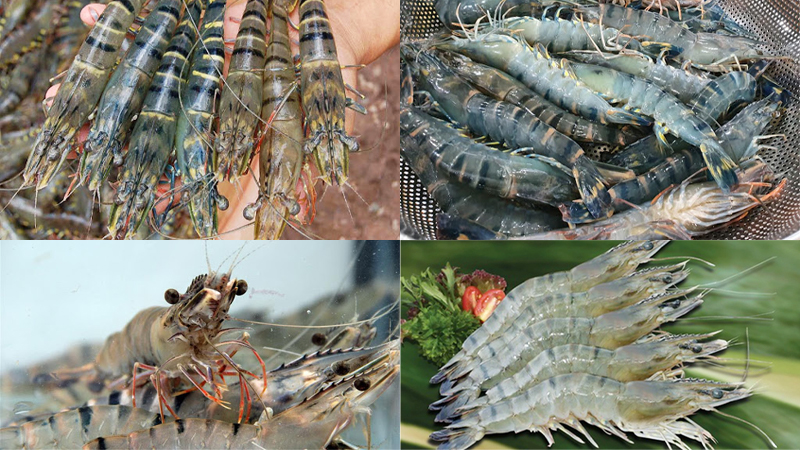 Eating shrimp in moderation has several health benefits.
Eating shrimp in moderation has several health benefits.
Nutritionists recommend including a moderate amount of shrimp in your daily diet as it is a nutrient-rich seafood option. Apart from providing essential nutrients, shrimp offers the following benefits:
Antioxidants: Help protect against cell damage and strengthen arteries, reducing the risk of heart attacks.
Astaxanthin: Inhibits wrinkle formation and protects the skin from sun damage, while also supporting brain health and reducing the risk of neurodegenerative diseases.
Good Cholesterol: Beneficial for cardiovascular health and promotes healthy blood circulation.
Calcium and Zinc: Important for bone health and can help prevent osteoporosis.
, , and ,…: Support eye health and prevent age-related eye degeneration.
: Helps reduce inflammation and promotes cardiovascular health.
3. Will Eating Shrimp Make You Fat?
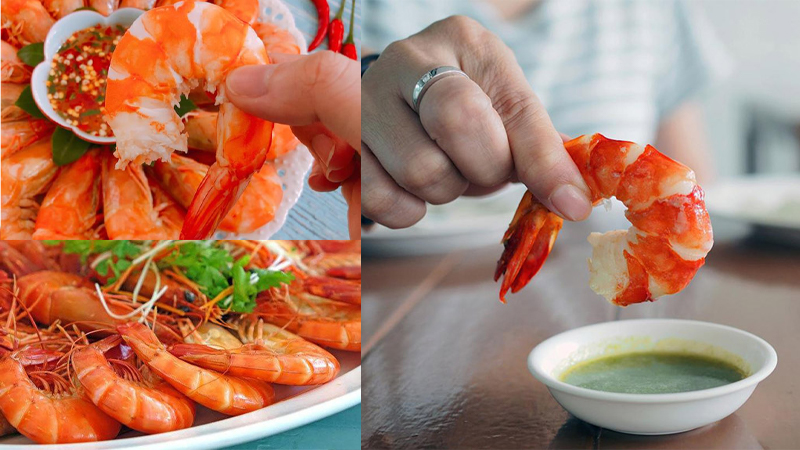 Eating shrimp in moderation will not make you fat.
Eating shrimp in moderation will not make you fat.
While shrimp is high in protein, it is not a significant source of calories. On average, 100 grams of shrimp contains only about 99 calories, which can be easily burned off with a 12-minute walk or 10 minutes of sports. Therefore, when consumed in moderation, shrimp is unlikely to lead to weight gain.
4. Can Eating Shrimp Help with Weight Loss?
 Yes, eating shrimp can support weight loss efforts.
Yes, eating shrimp can support weight loss efforts.
The answer is yes! As evident from the calorie information provided above, shrimp is relatively low in carbohydrates and calories while being nutrient-dense. However, it is recommended to opt for boiled or steamed shrimp instead of fried or stir-fried shrimp, as the latter can hinder your weight loss goals due to the added oil and fat.
5. Shrimp Recipes for Weight Loss
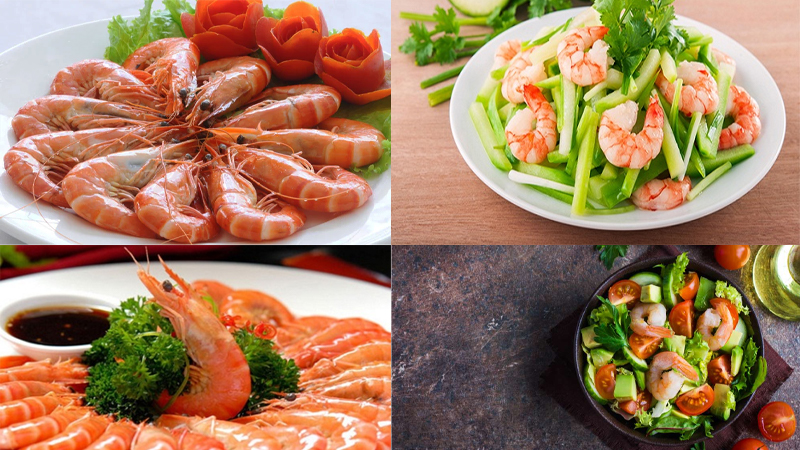 Boiled or steamed shrimp, shrimp stir-fry, and shrimp salad with vegetables are great options for weight loss.
Boiled or steamed shrimp, shrimp stir-fry, and shrimp salad with vegetables are great options for weight loss.
Here are some shrimp recipes that can support your weight loss journey:
Boiled or Steamed Shrimp
This is a popular choice among those who are conscious about their weight as boiling or steaming preserves the nutritional content of the shrimp while keeping the calorie count low.
Shrimp Stir-fry
While this dish is nutritious and easy to prepare, it is important to use minimal oil to avoid adding extra calories.
Shrimp Salad with Vegetables
This dish combines the delicious taste of shrimp with the nutritional benefits of , . It is an excellent choice for those on a diet or trying to lose weight.
6. Notes on Eating Shrimp for Weight Loss
 When eating shrimp for weight loss, avoid consuming the head and shell.
When eating shrimp for weight loss, avoid consuming the head and shell.
Here are some important considerations when incorporating shrimp into your weight loss diet:
Avoid Eating the Head and Shell:
Nutritionists advise against consuming these parts as the head contains minimal nutrients and a high concentration of waste products, while the shell can cause digestive issues such as bloating.
Don’t Overindulge:
Excessive shrimp consumption can lead to digestive problems like bloating and diarrhea. It is important to maintain a balanced diet and not rely solely on shrimp as your primary source of protein.
Opt for Fresh Shrimp:
Whenever possible, choose fresh shrimp over processed shrimp products like shrimp crackers or puffed shrimp. These processed foods often contain high levels of , and other harmful additives.
7. Frequently Asked Questions About Eating Shrimp
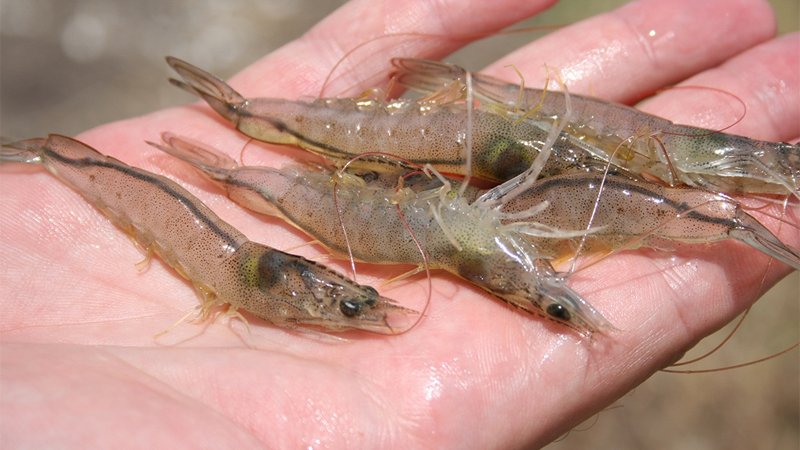 Answers to common questions about eating shrimp.
Answers to common questions about eating shrimp.
Should I Avoid Eating Shrimp If I Have a Cough?
There is no scientific evidence to suggest that shrimp consumption worsens a cough. However, it is advisable to peel the shrimp before eating to ensure better hygiene.
Do Shrimp Have Blood?
Yes, they do. Unlike mammals, the blood of shrimp, crabs, and other similar species does not contain red blood cells, only white blood cells. This is why their blood is not visibly red, leading some people to believe that they do not have blood.
Does Shrimp Shell Contain Calcium?
According to nutritionists, the primary source of calcium in shrimp is found in the meat, legs, and claws. The shell, on the other hand, is made up of chitin and does not provide significant calcium. Additionally, consuming large quantities of shrimp shells can lead to digestive issues.
Can Eating Shrimp Leave Scars?
Research has shown that shrimp contain compounds that can promote scarring. Therefore, individuals with open wounds or sensitive skin prone to scarring should refrain from consuming shrimp, as it may cause inflammation and itching. Similarly, those with keloid scars or easily irritated skin should also limit their shrimp intake.
In conclusion, this article has provided a comprehensive overview of the calorie content of shrimp, its nutritional benefits, and its role in weight management. Remember to practice moderation and include a variety of healthy foods in your diet to maintain a balanced and nutritious lifestyle. Cheers to your health!
Source: United States Department of Agriculture (USDA)
Buying shrimps: Should they be curved or straight? Insider tips for choosing the freshest and most delicious shrimp, don’t miss out on this crucial detail.
Shrimp is a popular and nutritious food, with high economic value. However, if you don’t pay attention to the type of shrimp you choose, it can be harmful to your health. Many shrimp on the market are contaminated with harmful chemicals and antibiotics that can pose serious risks to consumers. Therefore, it is important to be knowledgeable about the different types of shrimp and how to ensure their safety. In this guide, we will provide you with valuable information on selecting and preparing shrimp to enjoy a delicious and healthy meal.



























